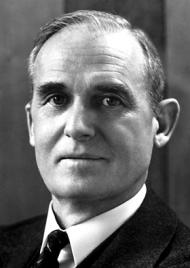Jagiellonian University, the oldest university in Poland, is founded in Kraków, Poland.
The Jagiellonian University (Polish: Uniwersytet Jagielloński [univɛrsɨtɛt`jaɡiɛllɔɲski], often shortened to UJ; historical names include Latin: Studium Generale, University of Kraków, Kraków Academy, The Main Crown School, and Main School of Kraków) was established in 1364 by Casimir III the Great in Kazimierz (district of Kraków). It is the oldest university in Poland, the second oldest university in Central Europe and one of the oldest universities in the world. It was positioned by QS World University Rankings as the best Polish university among the world's top 500 and the ARWU as second-best Polish higher-level institution.
The university fell upon hard times when the occupation of Kraków by Austria-Hungary during the Partitions of Poland threatened its existence. In 1817, soon after the creation of the Duchy of Warsaw the university renamed as
Jagiellonian University to commemorate Poland's Jagiellonian dynasty, which first revived the Kraków University in the past. In 2006,
The Times Higher Education Supplement ranked Jagiellonian University as Poland's top university.
HistoryIn the mid-14th century, King Casimir III of Poland realized that the nation needed a class of educated people, especially lawyers, who could codify the country's laws and administer the courts and offices. His efforts to found an institution of higher learning in Poland were rewarded when Pope Urban V granted him permission to set up an academy in Kraków. A royal charter of foundation was issued on 12 May 1364, and a simultaneous document was issued by the City Council granting privileges to the Studium Generale. The King provided funding for one chair in liberal arts, two in Medicine, three in Canon Law and five in Roman Law, funded by a quarterly payment taken from the proceeds of the royal monopoly on the salt mines at Wieliczka. The Cracow Academy's development stalled upon the death of King Casimir, but the institution was re-founded in 1400 by King Władysław Jagiełło and his wife Saint Jadwiga, the daughter of the King Louis of Hungary and Poland. The queen donated all of her personal jewelry to the academy, allowing it to enrol 203 students. The faculties of astronomy, law and theology attracted eminent scholars: for example, John Cantius, Stanisław of Skarbimierz, Paweł Włodkowic, Jan of Głogów, and Albert Brudzewski, who from 1491 to 1495 was one of Nicolaus Copernicus's teachers. The university was the first university in Europe to establish independent chairs in Mathematics and Astronomy.
Throughout the history of the University, thousands of students from all over Poland, Lithuania, Russia, Hungary, Bohemia, Germany, and Spain have studied there. In the second half of the 15th century, over 40% of students came from outside the Kingdom of Poland. For several centuries, virtually the entire intellectual elite of Poland was educated at the university.
The first chancellor of the University was Piotr Wysz, and the first professors were Czechs, Germans and Poles, many of them trained at the Charles University in Prague in Bohemia. By 1520 Greek philology was introduced by Constanzo Claretti and Wenzel von Hirschberg; Hebrew was also taught. The golden era of the University of Kraków took place during the Polish Renaissance, between 1500 and 1535, when it was attended by 3,215 students in the first decade of the 16th century. As the university's popularity declined in later centuries, this record was not surpassed until the late 18th century.
In 1846, after the Kraków Uprising, the city and its university became part of the Austrian Empire. The threat of a closure of the University was dissipated in 1847 by the Austrian Emperor's decree to maintain it. New buildings were added, including the Collegium Novum, which opened in 1887.
On November 6, 1939, following the Nazi invasion of Poland, 184 professors were arrested and deported to Sachsenhausen concentration camp during an operation codenamed Sonderaktion Krakau. The university, along with the rest of Poland's higher and secondary education, was shut down for the remainder of World War II. The faculty was later suppressed by the Communists in 1954.
In 2000, a new complex of university buildings, the so-called Third Campus, began construction; completion is planned for 2015. Public funds earmarked for the project amounted to 946.5 million zlotys, or 240 million euros. The Third Campus borders the LifeScience Park managed by the Jagiellonian Centre of Innovation. In 2007, the university's administrative offices, including those of the Rector and Deans, were located in the historic Collegium Novum.

